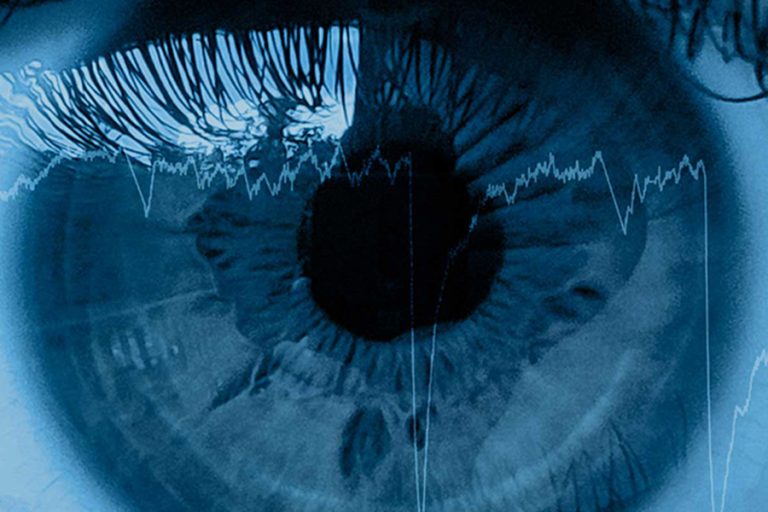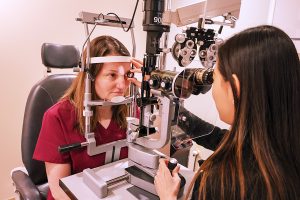Our neuro-ophthalmology service specializes in diagnosing and managing vision impairments that result from central nervous system conditions such as brain tumors, multiple sclerosis, and stroke. We integrate advanced neuroimaging and ophthalmic diagnostics to enhance understanding of complex neuro-ophthalmic conditions. We support healthcare providers and learners in delivering optimal care for patients with neurological and visual challenges.
Are You a Patient? Visit UW Health to Find a Specialist:
UW Health
Meet Dr. Judy Chen
 Yanjun “Judy” Chen, MD, leads our neuro-ophthalmology efforts with a clinician-scientist mindset and a strong commitment to patient care and learner growth and well-being. Dr. Chen’s work explores pupil reactivity as a window into brain aging and neurodegenerative disease, while her clinical practice emphasizes evidence-based, multidisciplinary care and clear communication with referring providers.
Yanjun “Judy” Chen, MD, leads our neuro-ophthalmology efforts with a clinician-scientist mindset and a strong commitment to patient care and learner growth and well-being. Dr. Chen’s work explores pupil reactivity as a window into brain aging and neurodegenerative disease, while her clinical practice emphasizes evidence-based, multidisciplinary care and clear communication with referring providers.
Clinical Care
Our faculty evaluate and manage visual dysfunction arising from neurologic disease, systemic illness, or treatment-related effects. We prioritize timely diagnosis, coordinated care plans, and direct communication with referring clinicians.
Common Conditions and Presentations
-
- Optic neuropathies (ischemic, demyelinating, hereditary, toxic/nutritional)
- Papilledema and idiopathic intracranial hypertension (IIH)
- Visual field defects from chiasmal and retro-chiasmal lesions
- Ocular motor disorders and diplopia (cranial nerve palsies, internuclear ophthalmoplegia)
- Myasthenia gravis (ocular) and thyroid eye disease with neuro-ophthalmic manifestations
- Transient visual symptoms (amaurosis fugax, migraine aura) and unexplained vision loss

Research
Our research spans clinical, translational, and methodological studies at the intersection of vision and brain health.
Focus Areas
- Pupil reactivity and autonomic biomarkers of brain aging and neurodegeneration
- Structure–function coupling: OCT and visual field modeling in optic neuropathies
- Neuro-inflammatory and demyelinating disease (e.g., optic neuritis) outcomes and recovery
- Intracranial pressure disorders and vision preservation strategies
- Imaging analytics and quantitative phenotype development for multicenter studies
Education
We teach the neuro-ophthalmic fundamentals that every ophthalmologist needs, while offering advanced exposure for trainees pursuing deeper subspecialty competence.
Educational Resources
- Standardized reading lists (foundational texts, high-yield reviews, guideline summaries)
- Curated image library for teaching (fields, OCT, motility charts)
- Case repositories for independent study and board preparation
Referrals
We value timely and collaborative care for patients with complex neuro-ophthalmic conditions. Referring providers can expect comprehensive evaluations, concise consult notes, and clear management plans coordinated across specialties.
Are You a Patient? Visit UW Health for More Information:
UW Health


